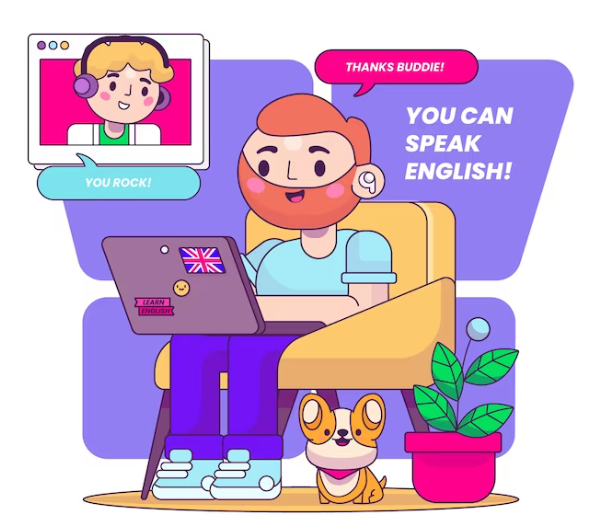In grammar, a conjunction is a part of speech that connects words, phrases, or clauses.
Sentences using conjunctions are easy to make since there are many of them that we can use.
A conjunction is a word used to connect clauses or sentences or to coordinate words in the same clause (e.g. and, but, if ).
Some conjunctions are most common others, some are used in formal and informal settings while others are commonly used in academic writing.
Table of Contents
- 3 Types of Conjunctions
- Types of Conjunctions: Coordinating conjunctions
- Types of Conjunctions: Correlative conjunctions
- Types of Conjunctions: Subordinating conjunctions
- Sentences using Conjunctions: Because
- Sentences using Conjunctions: For
- Sentences using Conjunctions: But
- Sentences using Conjunctions: And
- Sentences using Conjunctions: Or
- Sentences using Conjunctions: Yet
- Sentences using Conjunctions: Although
3 Types of Conjunctions
There are three different types of conjunctions:
- Coordinating Conjunctions
- Subordinating Conjunctions
- Correlative Conjunctions
The 3 different types of conjunctions have different roles when joining clauses.
Read the definitions, check the examples and watch the video to understand more about the different types of conjunctions
Types of Conjunctions: Coordinating conjunctions
Coordinating conjunctions, also called coordinators. In English the mnemonic acronym FANBOYS can be used to remember the coordinators for, and, nor, but, or, yet, and so.
Here are some examples of coordinating conjunctions in English and what they do:
- For presents a reason
- And presents non-contrasting item(s) or idea(s)
- Nor presents a non-contrasting negative idea “).
- But presents a contrast or exception
- Or presents an alternative item or idea
- Yet presents a contrast or exception
- So presents a consequence
More Examples
- I normally like to run, but today I am walking.
- I like strawberry and chocolate ice cream
- I am smarter than my brother, yet he still got a higher grade on the test.
- I don’t make good grades, nor do I try very hard in school.
- It is raining outside today, so I think I will wear my raincoat.
- I don’t like yellow or blue
Types of Conjunctions: Correlative conjunctions
Correlative conjunctions work in pairs to join words and groups of words of equal weight in a sentence. There are six different pairs of correlative conjunctions:
- either…or
- not only…but also
- neither…nor (or increasingly neither…or)
- both…and
- whether…or
- just as…so
Examples of sentences with correlative conjunctions:
- You either do your work or prepare for a trip to the office.
- Not only is he handsome, but he is also brilliant.
- Neither the basketball team nor the football team is doing well.
- Both the cross country team and the swimming team are doing well.
- Whether you stay or go is your decision.
- Just as many Americans love football, so many Canadians love ice hockey.
Types of Conjunctions: Subordinating conjunctions
Subordinating conjunctions, also called subordinators, are conjunctions that conjoin an independent clause and a dependent clause.
Subordinating conjunctions are only used for/in complex sentences and independent clause and a dependent clause.
This is a List of Common Subordinating Conjunctions
| after although as as soon as because before by the time even if even though every time if in case | in order that in the event that just in case now that once only if provided that rather than since so that than that | though until when whenever where whereas wherever whether whether or not while why |
Examples of sentences with Subordinating Conjunctions in English
- After dinner, we’ll go see a movie
- When we’re done, let’s get some ice cream
- Wherever I go, I try to enjoy myself
- If you find out, please let me know
- Until we find it, we can’t leave
- I’ll keep on dreaming until my dreams come true
- The child ran to her mother as soon as she saw her.
- Once you see him, you will recognize him
- He worked harder for a promotion so he could buy a new car
- I trust him because he is a trustworthy person
- They came to talk to me as soon as I entered the classroom
- He inspires me always because he believes in me
- I will not tell you anything unless you tell me what you know first
- I go out whenever the weather is good.
Sentences using Conjunctions: Because
These are some sentence using because which is one of the most common conjunctions in English
- I did it because Carlos told me
- I went to the supermarket because my mother told me
- I started working as a driver because I really needed the money
- She started complaining to the hotel because someone stole her purse
- He made a few adjustments because the site was really slow
Sentences using Conjunctions: For
*for means the exact same thing as because. The only difference is that when you use for to join two sentences together into one compound sentence, you need to use a comma before it. When you use because to join to sentences, you don’t use a comma before it.
These are some sentences using the conjunction for
- I drank some water, for I was thirsty.
- She must have been very hungry, for she ate everything immediately.
- He’s overweight, for he eats too many cakes and biscuits.
- I told her to leave, for I was very tired
- I drank some water, for I was thirsty.
- She put on a sweater, for it was cold outside.
- She was tired when she arrived in class, for she had studied all night.
Sentences using Conjunctions: But
But is used for joining two ideas or statements when the second one is different from the first one, or seems surprising after the first one
- You are great but somebody else took the job
- I was tired but I really wanted to finish the marathon
- She was kinda lazy but her English is really good
- I like soccer but I hardly ever play
- I tried out for the basketball team, but I didn’t make it.
Sentences using Conjunctions: And
And is used between words, phrases etc in order to connect them together
- I have to do my homework and you will finish the project
- I love teaching children and preparing them for international tests
- I play tennis and swim
- She studies administration and manages online store
- We applied for the application and applied for the job
Sentences using Conjunctions: Or
Or is used to connect different possibilities
- You have to behave or you go home
- You need money or another job
- She needs a car or a better motorcycle
- She has to get a job or study another major
- Do you like tea or coffee?
Sentences using Conjunctions: Yet
These are some sentences with yet acting as a conjunction
- He’s cool enough, yet I don’t like him.
- Linda plays tennis well, yet her favorite sport is soccer
- I don’t like the snow, yet I want to visit the North Pole
- I haven’t read the whole book, yet I am impressed by the ending
- She hates this place, yet she is back to help people change
- I haven’t watched, yet I think you should watch it
Sentences using Conjunctions: Although
Although mean ‘in spite of something’.
- Although I don’t have a good English, I will apply for the job
- I have a lot respect for her although I don’t agree with her
- They won the war, although it cost them millions of lives.
- He is still active although he is not as good as it used to be
- Although they are twins, they have few interests in common
- Although it is a very difficult task, I will do my best.
- Although she is my best friends, I agree that she is a bit rude sometimes

